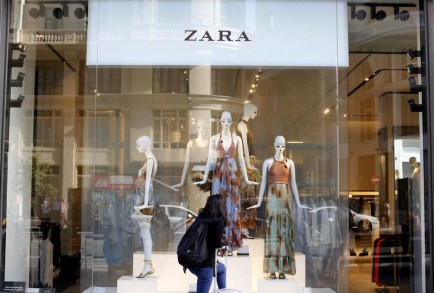
Zara has enjoyed soaring success over the past decade, flexibly meeting the fashion needs of the cash-strapped and the comfortable, and now more and more people are shopping online.
Normally when a clothing chain announces it is to close 16 stores it is bad news. But Zara is not a normal clothing chain, so the revelation that Inditex – the brand’s owner – is seeking a buyer for 16 of its stores in Spain and Portugal should certainly not be classed as negative…
In fact, the company’s owner Amancio Ortega – who is regularly ranked as the world’s richest man – has revealed that because of Zara’s successful online platform it can afford to offload 16 locations across the Iberian peninsula.
Ortega has put the branches up for sale for €400 million under a sale-and-leaseback option that would allow the buyer to vacate the properties after five years free from any further contractual obligations.
Having reported revenues of €11.7 billion in the first half of the year, business is brisk for Inditex, with Zara leading the way. Such a strong performance was boosted by a notable growth in online sales, particularly in the UK, where online shoppers account for 15% of Zara’s sales.
That figure averages out at 8% for Europe, but is just 3% in Spain.
Given Spain’s warmer weather and town layout that makes it easier for people to shop on foot, it is unsurprising that Spaniards still prefer to shop on the high street rather than online. However, this is changing, with Spain now showing an increased appetite for shopping online.
“While Spain has the lowest absorption of internet sales now, it’s expected to have the highest growth rate in the coming years as cultural attitudes toward online shopping change,” said Andrew Allen, global head of real estate investment research at Aberdeen Standard Investments. “We estimate annual growth in internet purchases of 18% per year to 2021 for Spain, versus an average of 12% for Europe as a whole.”
 en
en



 Vlaams-Nederlands
Vlaams-Nederlands
0 Comments
Leave a Comment
DISCLAIMER
The opinions and comments expressed by contributors to this Blog are theirs alone and do not necessarily reflect the views of VIVA Homes Under the Sun Ltd, any of its associated companies, or employees; nor is VIVA to be held responsible or accountable for the accuracy of any of the information supplied.
Have you got something to say?